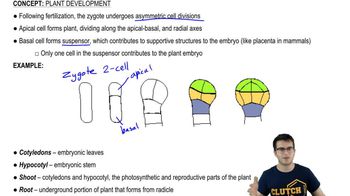Textbook Question
Micronutrients are needed in very small amounts because
a. Most of them are mobile in the plant
b. Most serve mainly as cofactors of enzymes
c. Most are supplied in large enough quantities in seeds
d. They play only a minor role in the growth and health of the plant
1124
views





